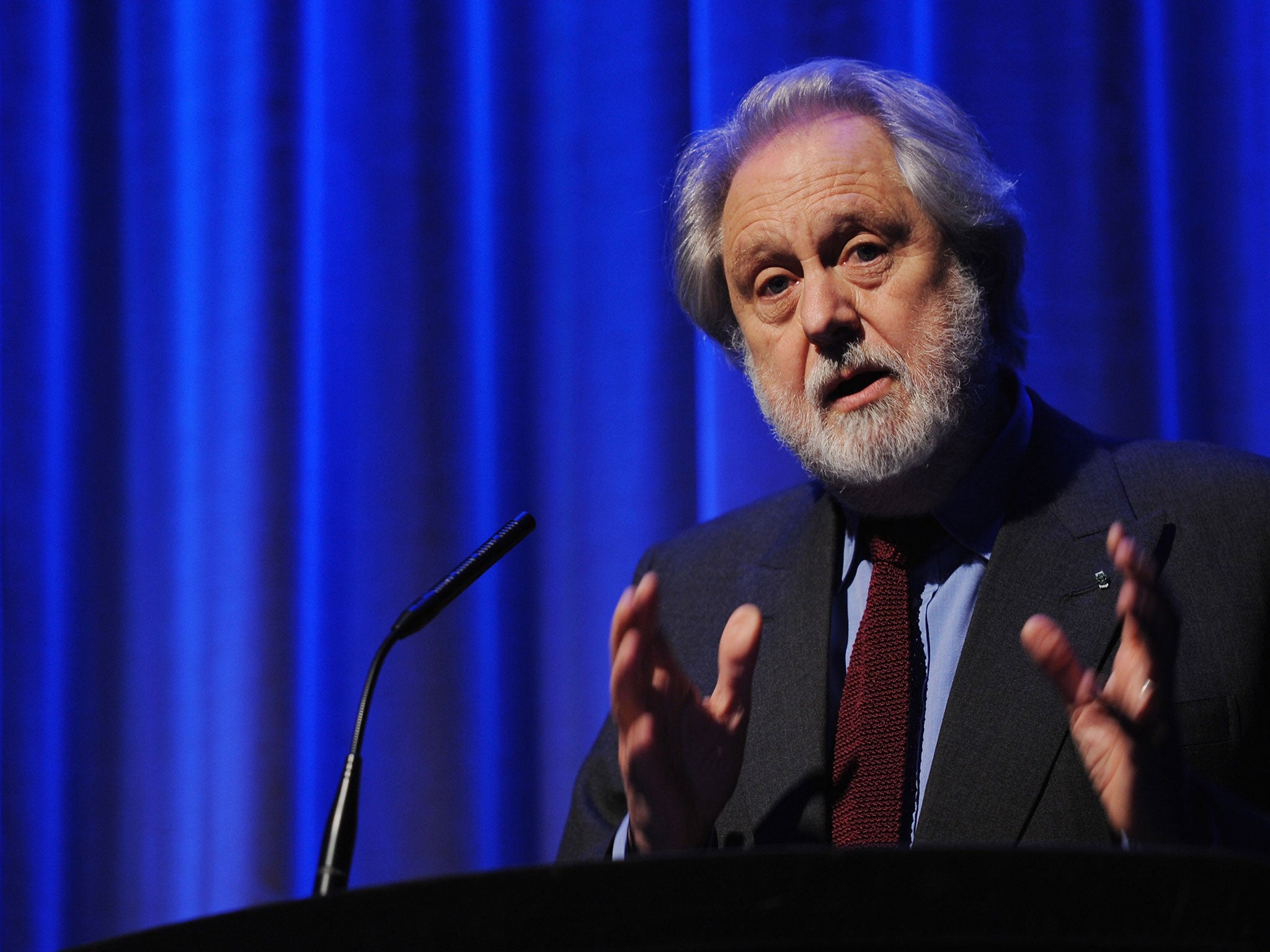Lord Puttnam: Chariots of Fire producer to launch own inquiry into the future of public service broadcasting
Lord Puttnam’s commission will be seen as challenge to Culture Secretary

Your support helps us to tell the story
From reproductive rights to climate change to Big Tech, The Independent is on the ground when the story is developing. Whether it's investigating the financials of Elon Musk's pro-Trump PAC or producing our latest documentary, 'The A Word', which shines a light on the American women fighting for reproductive rights, we know how important it is to parse out the facts from the messaging.
At such a critical moment in US history, we need reporters on the ground. Your donation allows us to keep sending journalists to speak to both sides of the story.
The Independent is trusted by Americans across the entire political spectrum. And unlike many other quality news outlets, we choose not to lock Americans out of our reporting and analysis with paywalls. We believe quality journalism should be available to everyone, paid for by those who can afford it.
Your support makes all the difference.The film producer Lord Puttnam, who opposes government proposals to reduce the size and scope of the BBC, is to chair his own alternative inquiry into the future of public service television.
Backed by Bafta – the British Academy of Film and Television Arts – Lord Puttnam, whose credits include the Oscar-winning Chariots of Fire and The Killing Fields, will probe the “nature, purpose and role of public service television today and into the future.”
Based at the media and communications department at Goldsmiths, University of London, his panel, which promises to include leading voices from the arts and TV industry, will stage a series of evidence-gathering events from next month. As well as Bafta, partners supporting the inquiry include Vice Media, the Hansard Society and the British Academy.
John Whittingdale, the Culture Secretary, has questioned whether the BBC, which faces a 10 per cent real-terms budget cut, should buy imported entertainment formats and is considering whether a household levy should replace the licence fee.
The commission led by Lord Puttnam, who recently said the BBC and Channel 4 faced huge challenges from “political zealots – noticeably, but not exclusively, from those on the right”, could signal a fightback by those in the creative industries opposed to Tory proposals to shake up the media landscape, which now include examining the case for privatising Channel 4. The Puttnam inquiry is likely to be seen as a rival body to an eight-person advisory committee – including Dawn Airey, former boss of Channel 5, and Dame Colette Bowe, former chairwoman of Ofcom – appointed by Mr Whittingdale to guide his conclusions on the renewal of the BBC’s Royal Charter.
Lord Puttnam said the case for a “fully independent” inquiry was overwhelming. His commission will start from the premise that “public service channels continue to command some two thirds of viewing audiences and far outspend their non-PSB rivals on original content. Yet, real-terms investment in public service output is declining across all genres – not least because of substantial cuts to the BBC’s budget in recent years.”
It will “address ways in which public service content can be most effectively nurtured taking into consideration a growing range of services, platforms and funding models, continuous technological development and audience fragmentation particularly amongst younger and diverse audiences.”
Lord Puttnam’s inquiry will sit until June next year, when proposals for the next BBC Royal Charter are finalised. He said: “We need to consider both the challenges and opportunities for public service television in the digital age.
“Public service broadcasters remain at the heart of our broadcast landscape in the UK but we are seeing a worrying fall in investment in key areas such as arts, news and drama as well as the tendency for younger audiences to migrate to new digital platforms.”
Join our commenting forum
Join thought-provoking conversations, follow other Independent readers and see their replies
Comments